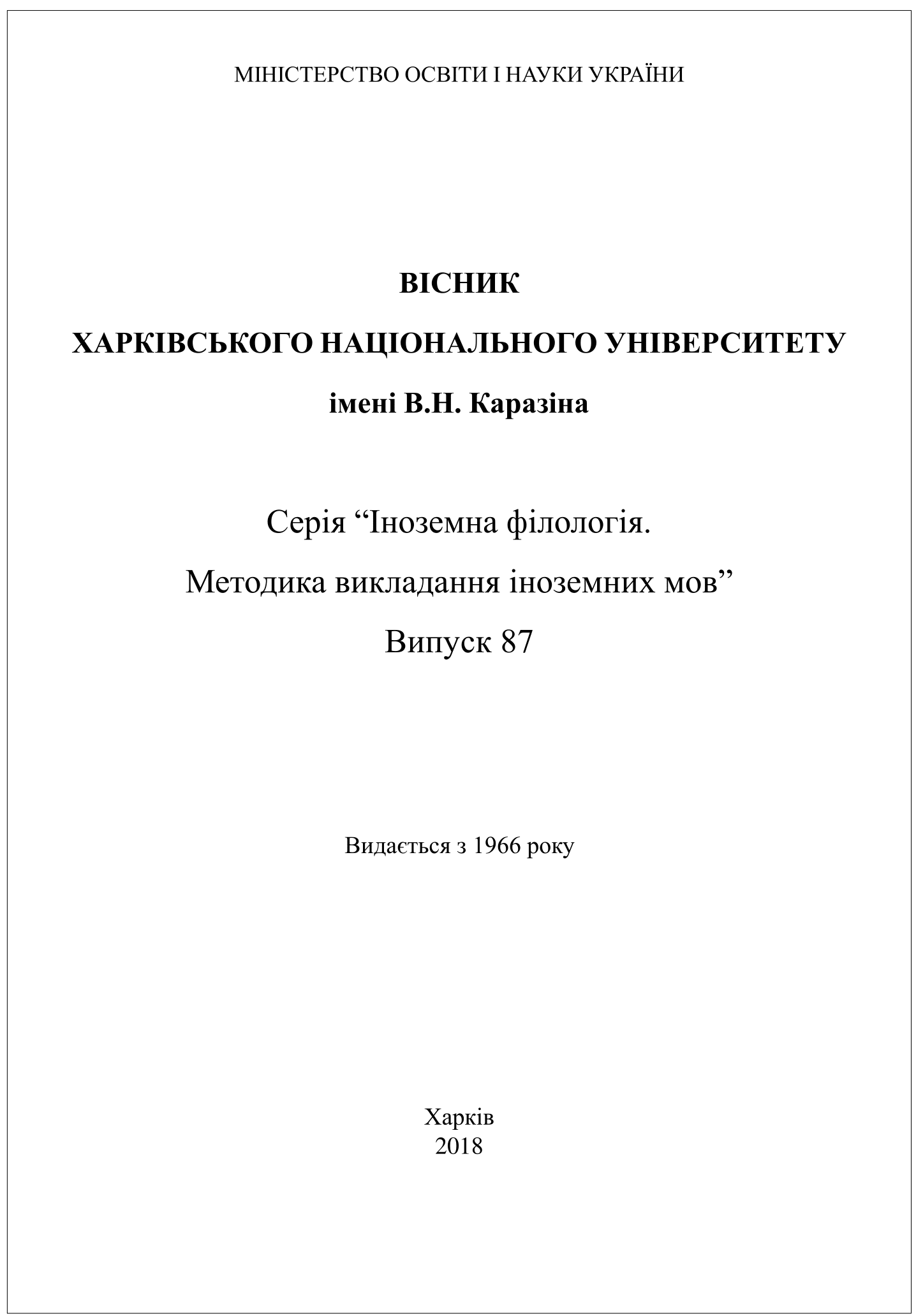Синергетика семантичного декодування іменників з родовими ролями у німецькомовній пресі
Анотація
Статтю присвячено вивченню взаємодії синтагматичних, семантичних і парадигматичних факторів у процесі генерування іменникового змісту з категорією роду в німецькій мові з позиції лінгвосинергетичної наукової парадигми, яка розглядає мову як складну динамічну систему, здатну до самоорганізації і саморегуляції. Методологічно важливим у дослідженні є положення про те, що рушійним фактором мовного розвитку виступає синергетичний закон докладання найменших зусиль і збереження мовної енергії. Відносно іменника синергетичний механізм мінімізації зусиль у процесі генерування іменниково-інформаційного мовленнєвого змісту передбачає, що ментальний лексикон людини скеровано на декодування оптимального обсягу реалізованого семантичного потенціалу моносемічних та полісемічних моделей слова. Отримані на підставі синергетично-квантитативного підходу результати екстрапольовано на лінгвосинергетичні моделі самоорганізації іменникового найменування згідно з принципом мінімізації зусиль, що скеровує ментальний лексикон людини на оптимальне декодування семантичного обсягу полісемічних або моносемічних іменників у співвіднесенні з категорією роду в німецькомовній пресі. Лінгвосинергетичний підхід із залученням квантитативних методів дослідження дав змогу проаналізувати на синхронічному зрізі результати саморегуляції й становлення полісемічних та моносемічних іменників з огляду на пройдений ними синергетичний цикл порядок – хаос – порядок і в такий спосіб поповнити германське мовознавство новими знаннями про німецькомовну іменникову лексику.
Завантаження
Посилання
Chomsky, N. (1978). Studien zur Fragen der Semantik. Frankfurt a. M., Berlin, Wien : Ullstein Buch.
Dombrovan, T.I. (2013). Jazyk v kontekste sinergetiki [Language in the context of synergetics]. Odessa: Odessa City Printing House.
Doris, W. (2012). Genus: Zur Funktion einer Nominalkategorie exemplarisch dargestellt am Deutschen. Frankfurt am Main: Peter Lang Verlag.
Generalova, L.K. (1973). K voprose o strukture znachenij imen sushhestvitel’nyh [To the question of the structure of the meaning of nouns]. Sbornik nauchnyh trudov Moskovskogo ped. in-ta. – Moscow Pedagogical Institute Messenger, 71, 43–50 (in Russian).
German, I.A. (2000). Lingvosinergetika [Linguosynergetics]. Barnaul: Publishing House of the Altai Academy of Economics and Law.
Haken, H. (1985). Sinergetika: Ierarhija neustojchivosti v samoorganizujushhihsja sistemah i ustrojstvah [Instability hierarchies of self-organizing systems and devices]. Moscow: Mir Publ.
Helbig, G., und Buscha, J. (1996). Deutsche Grammatik : Ein Handbuch für den Ausländerunterricht. Leipzig; Berlin; München; Wien; Zürich; New York: Langenscheidt Verlag Enzyklopädie.
Jermolenko, S.Ja. (1982). Syntaksys i stylistychna semantyka [Syntax and stylistic semantics]. Kyiv: Naukova Dumka Publ.
Kolmogorova, A.V. (2012). Jazykovoe znachenie kak sinergeticheskaja sistema [Language meaning as a synergetic system]. Sankt-Peterburgskij universitetskij konsorcium : Nauchnoe mnenie. – St. Petersburg university consortium : Scientific opinion, 9, 61-67 (in Russian).
Laddissow, A. (1983). Konnotation in der nominalen Wortbildung der deutschen Gegenwartssprache. In: W. Fleischer (ed.). Entwicklungen der Wortbildung der deutschen Gegenwartssprache. Berlin:Akademie der Wissenschaften der DDR, S. 21–48.
Levickij, V.V. (2006). Semasiologija [Semasiology]. Vinnitsa: Nova Knyha Publ.
Maineke, E. (1996). Das Substantiv in der deutschen Gegenwartssprache. Heidelberg: Universitätsverlag WINTER.
Ol’shanskij, I.G., and Skiba, V.P. (1987). Leksicheskaja polisemija v sisteme jazyka i tekste [Lexical polysemy in the system of language and text]. Chisinau: Shtiintsa Publ.
Paul, H. (1995). Prinzipien der Sprachgeschichte. Tübingen: Max Niemeyer Verlag.
Pihtovnikova, L.S. (2012). Lingvosinergetika: osnovy i ocherk napravlenij [Linguosynergetics: the basics and the sketch of directions]. Kharkiv: V.N. Karazin Kharkiv National Univ. Publ.
Rothe, A. (2012). Genus und Mehrsprachigkeit : Zur Code–Switching und Entlehnung in der Nominalphrase. Heidelberg : Universitätsverlag WINTER.
Schwarz, M. (1996). Einführung in die Kognitive Linguistik. Tübingen und Basel : Francke Verlag.
Selivanova, O. (2013). Svit svidomosti v movi. Mir soznanija v jazyke [The world of consciousness in the language]. Cherkasy: Ju. Chabanenko Publ.
Zipf, G.K. (1949). Human behaviour and the principle of least effort. Cambridge: Addison–Wesley.




